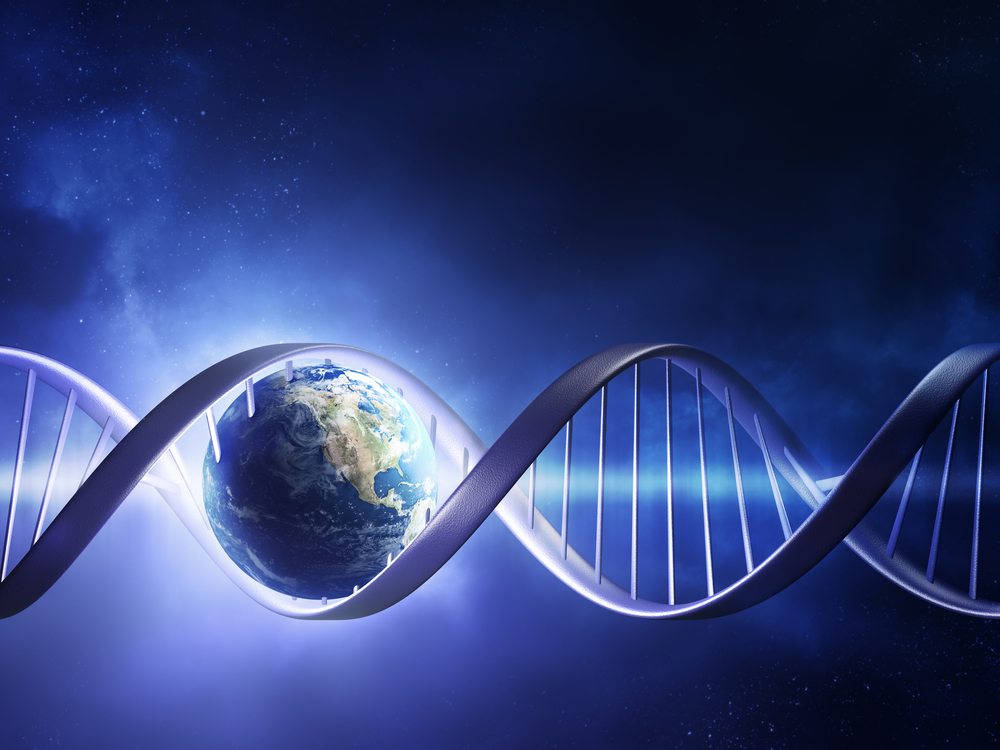Researchers Cram 700TB of Data Into One Gram of DNA
Despite decades of research, Deoxyribonucleic Acid, better known as DNA, is still considered to be one of the most complex structures in existence. Naturally, scientists have been working hard to fully harness the unique powers of DNA.
One potential use of DNA is its potential to store digital data. Because of its extremely dense structure, stability and survivability, DNA is an ideal candidate for massive data storage. While many extreme storage mediums need to be kept in strict temperature environments, DNA is able to survive for thousands of years at room temperature.
Taking full advantage of its properties, Harvard researchers George Church and Sri Kosuri have successfully stored 700 terabytes of data into a single gram of DNA.
Surprisingly, the process was somewhat similar to traditional storage devices. While standard digital storage devices encode fragments of binary data onto hard drive platters, the DNA storage process synthesizes strands and encodes binary values onto each of its four DNA bases (TGAC). To read the stored data, all you would have to do is sequence the unique strands of DNA - in a similar fashion as sequencing the human genome.
While this method may be capable of storing staggering amounts of data, synthesizing and sequencing DNA is no simple task. While modern lab equipment has certainly evolved over the years, DNA reading and writing would be a costly and lengthy process. Although this suggests DNA should be used for archival purposes, who knows what the future holds.
Contact Us for News Tips, Corrections and Feedback
Get Tom's Hardware's best news and in-depth reviews, straight to your inbox.
-
pacioli DNA gets broken down very fast by microbes.Reply
I wonder how they can prevent them from getting at the DNA? -
chuckydb pacioliDNA gets broken down very fast by microbes.I wonder how they can prevent them from getting at the DNA?Reply
Well, if the data magically gets transformed by a virus, that will help me explain all that 700TB of po... -
Johmama This is really interesting. That is an insane amount of data in such a little volume of material. And it's DNA no less. Just the thought that we can write information onto DNA and read it back is mind-blowing. That would be really cool if people wrote to DNA instead of HDD's and SSD's in the future. (Probably not, but one can fantasize; this sounds very sci-fi-like).Reply -
mikewong Ok, so the process is costly and lengthy for reading writing to a DNA storage. What if they use a simpler and bigger version of a DNA? I don't mind carrying 700 TB in the size of a.... 3.5" HDD.Reply -
Verrin If spintronics ever proves viable, we might still get it to write huge amount of data in an even smaller volumes of space yet.Reply -
twelch82 JohmamaThis is really interesting. That is an insane amount of data in such a little volume of material. And it's DNA no less. Just the thought that we can write information onto DNA and read it back is mind-blowing. That would be really cool if people wrote to DNA instead of HDD's and SSD's in the future. (Probably not, but one can fantasize; this sounds very sci-fi-like).Reply
It's really not that surprising to me, because the parallels between how life works and how computers work seem extremely strong. If you think about it in the context of computer code, even the similarities in DNA among different living organisms make sense. Most of the core code will be similar and shared, regardless of the task the program performs.
Maybe it is no coincidence that humans developed computer technology because it reflects how we ourselves work, and consequently, also how we think. -
twelch82 I also think that at some point, we will be able to produce a debugger for DNA.Reply
It will never be an easy task, similar to how it would not be an easy task to figure out how a large complex program like Windows 7 works without having access to the source code, but I believe it will all make sense when we can fully reverse-engineer it. -
viridiancrystal They could store all of the 2011 digital world in 4 grams of DNA O.oReply
That is the same weight as a teaspoon of sugar. Wow. -
Perhaps, human DNA contains volumes of stored data, information or messages from our creator(s), if you believe in creationism.Reply
-
bobusboy Forget cloud storage: You could literally keep all of your personal information on you at all timesReply

